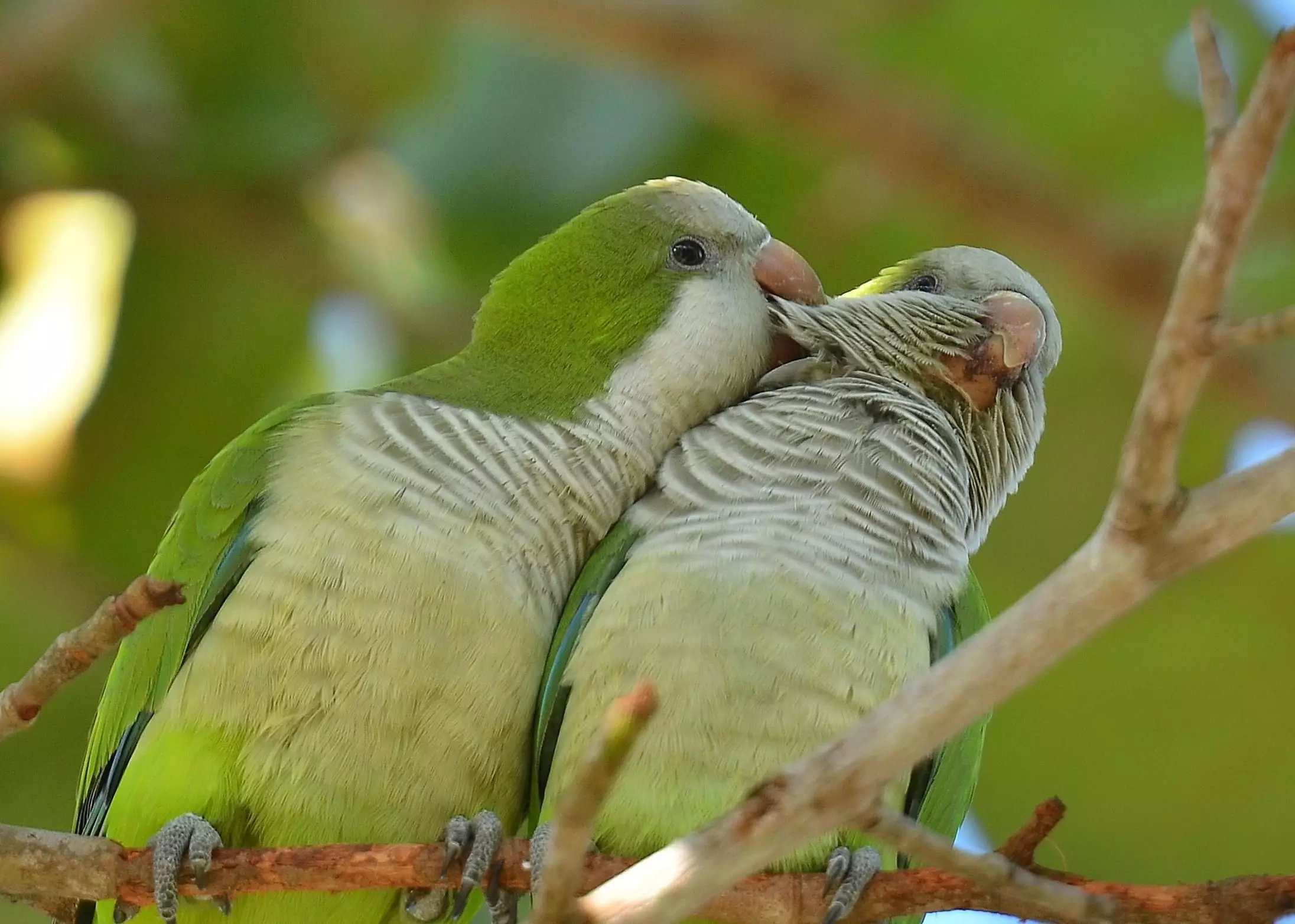Quaker parrots, also known as monk parakeets, are a captivating choice for avian enthusiasts seeking a dynamic companion in a smaller format. These birds possess a delightful combination of playfulness, intelligence, and the ability to mimic human speech, which makes them a sought-after pet for many. Known for their engaging personalities, Quaker parrots bring the entertaining characteristics of a larger parrot without the size. However, future owners must navigate various legal considerations, particularly in certain states within the U.S., where keeping these remarkable creatures is restricted.
Named for their distinct coloration, Quaker parrots showcase vibrant green feathers complemented by a striking gray breast, resembling the garb of 18th-century Quakers. They typically measure around 12 inches from beak to tail and weigh between 4 to 5 ounces. Their lifespan can extend from 20 to 30 years, often surpassing this range with proper care. Native to parts of South America, including central Bolivia and Brazil, these sociable birds often establish camaraderie within large nesting communities that they meticulously build using twigs and branches. Interestingly, they are the only parrot species recognized for constructing such intricate nests, with some colonies growing as expansive as a compact car.
Quaker parrots are naturally social creatures, thriving on interaction and companionship. They exhibit captivating behaviors that can amuse and charm their owners, often maintaining a reputation as the “clowns” of the bird world. With an inherent affinity for bonding, they tend to gravitate towards a specific individual, forging a loyal relationship that lasts a lifetime. This affectionate nature makes them suitable companions for families and those looking for engaging pets. Nevertheless, to foster a positive relationship, early socialization and training become crucial. Without proper attention, quirky behaviors may surface, including possessiveness over territory, particularly regarding their cage.
Apart from their sociable demeanor, Quaker parrots are known for their vocalization skills. They have a penchant for building an extensive vocabulary, can string together phrases, and engage in playful mimicry of sounds. Their chatter can vary from gentle to more pronounced calls, with experiences differing from one owner to another. However, they generally do not emit the piercing shrieks characteristic of other parrots. Thus, in residential settings, their noise level may be manageable, making them suitable candidates for apartment living.
A balanced diet is essential for Quaker parrots, and pet owners must ensure they receive proper nutrition to maintain optimal health. Pet stores offer various high-quality pellet mixes designed for parrots, which should ideally comprise the bulk of their diet. In addition to pellets, provide fresh fruits, vegetables, and nuts, ensuring a colorful assortment of produce that mirrors their natural foraging behavior. It is important to monitor their food intake, as obesity poses a significant health risk and can lead to issues like fatty liver disease.
Quakers are enthusiastic eaters and can display unhealthy habits, such as overindulging in seeds or high-fat treats. Owners should adhere to a structured feeding regimen that limits these indulgences and prevents obesity. Social interaction, climbing opportunities, and playtime can further counteract the risk of obesity and related health concerns, such as self-mutilation, which often stems from boredom or stress.
To foster a stimulating environment for your Quaker parrot, invest in a spacious cage that allows them to stretch their wings and play freely. Ideally, the cage should be at least 18 inches squared, though larger is better to accommodate their playful nature and propensity for exploration. Ensure the enclosure is sturdy, as these clever birds are adept at opening cages when seeking adventure.
Designate safe play areas outside the cage, providing various toys and activities to keep your bird engaged. Encourage their nest-building instinct, as it is a significant aspect of their behavior. You may find your Quaker attempting to weave materials into the bars of their cage or collecting household items for their personal nest. Always supervise your bird during these activities to prevent accidents.
Quaker parrots embody social, affectionate, and intelligent traits that can enrich the lives of their owners. Their captivating personalities make them excellent companions for both seasoned bird enthusiasts and newcomers alike. Nevertheless, prospective owners must remain vigilant regarding local regulations, dietary requirements, and environmental needs to ensure these birds thrive in captivity. With dedication and the right approach, a Quaker parrot can bring years of joy and companionship, transforming any household into a lively “human flock.” For those considering bringing a Quaker parrot into their lives, thorough research and preparation are key to fostering a positive, long-lasting bond.

